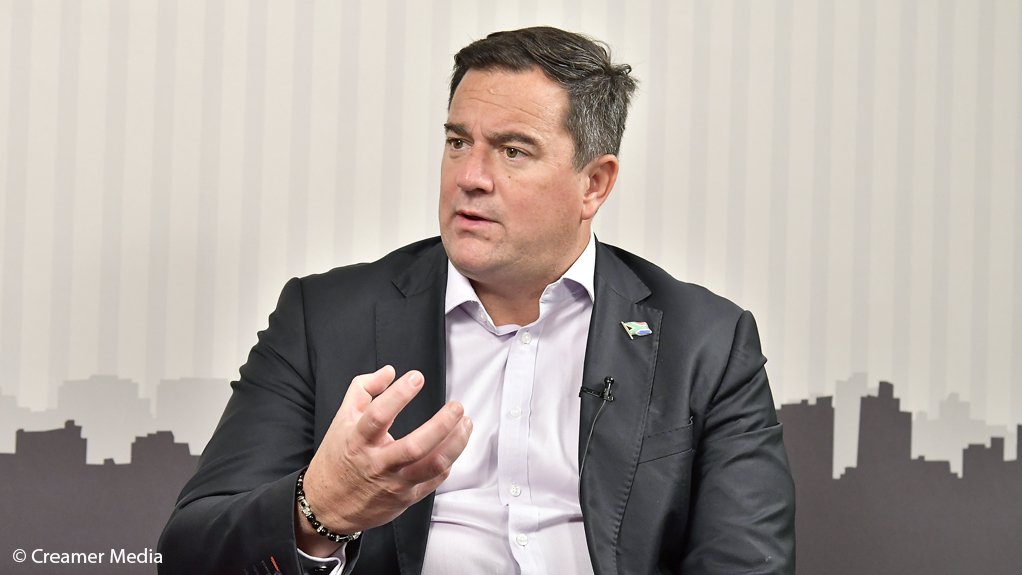While the Democratic Alliance (DA) has much to consider before and after the 2024 national elections, its leader, John Steenhuisen stressed that his focus for the next 85 days, is to get the Multi-Party Charter (MPC) over the line, come May 29.
Speaking exclusively with Polity, he said two questions were going to be fundamental to voters in this election: Does the party they are voting for have a path to victory and does it have a track record of delivery?
He said with the MPC, for the first time in 30 years, there is now a path to victory.
“It’s not an easy path and it’s not a certain thing and it’s not a guarantee, which is why I called it a Moonshot Pact originally, but it is a path. And voters need to look at the parties and the charter and know that these are parties that have a clear path to victory,” he said.
He doesn’t believe it is “healthy” for the country’s democracy, economy, or socio-economic fabric to have a party in government for more than 30 years.
“I do think the ANC [African National Congress] would do well to spend some time in the opposition benches, where they can reinvent themselves,” he said.
Steenhuisen sat down with Polity to unpack the DA’s manifesto ahead of what has been described as the most crucial election since democracy.
When asked about whether the DA would consider entering into a coalition with the ANC, Steenhuisen replied, “it’s not that simple”.
“…because who am I going to be sitting across the table from after the election. If the ANC falls below 50%, there's a very high likelihood that Mr Ramaphosa will have to fall on his sword and go, he won’t survive being the first ANC president to lose the ANC their majority. So who am I going to be sitting across the table from? Is it Paul Mashatile, who’s now embroiled in this huge corruption scandal and seems to be involved in graft and the like of epic proportions. Is it Fikile Mbalula, who's very hard to take seriously or is it some other radical faction? So we have to assess after the election, what the next move would be,” he said.
The DA would also have to consult with “our friends in the Multi-Party Charter” and Steenhuisen said he would also have to consult his own party and voters.
He warned that any combination of an ANC, Economic Freedom Fighters (EFF) or MK coalition would be a “disaster” and prophesied overnight disinvestment and overnight loss of confidence in the economy, if that were to happen.
“I think you would see a huge problem of capital flight out of South Africa as people panic that we're heading down the Venezuela or Zimbabwe route and you'd want to avoid that at all costs. And so we may be forced, after the elections, to look at what are the least worst options and that may include entering into talks with various people,” he suggested.
STABLE COALITIONS
When asked about how the DA would ensure stable coalitions at a national or provincial level, in light of the many failed agreements in metros, Steenhuisen pointed out that early coalitions didn’t have enough time to put in solid agreements, concrete plans or dispute resolution mechanisms.
He said as a result of that, he announced the Moonshot Pact last year, to give a “runway of a year” to iron out problems.
“When we do end up with a result on the 29th of May, the Multi-Party Charter can move quickly to sign a coalition agreement because we've frontloaded a lot of the hard work that had to be done,” he assured.
He pointed out that it was easy to look at coalitions through the lens of Johannesburg, Tshwane and Ekurhuleni.
“… and I think that would be an unfair analysis of coalitions. We're involved in over 25 coalitions around the country. They bring good, clean accountable, stable government to places as diverse as Richards Bay in KwaZulu-Natal and Saldanha Bay in the Western Cape. You don’t hear about them in the media, they don’t make a lot of noise, because they’re getting on with the business of running a good, clean accountable government,” he said.
He cautioned “throwing the coalition baby out with the Joburg bathwater” but acknowledged that there were significant problems in Gauteng and that these were lessons that voters would have to take with them into the voting booth.
He warned voters against over-fragmenting the vote, explaining that it made it impossible to form stable coalitions, as a result, and further warned of chaos at a national or provincial level.
“Voters need to think very carefully in this next election and vote for parties with an established track record, with a history of getting things done and who are serious about being able to build strong workable coalitions going forward,” he said.
He said there was a need for new legislation to govern coalitions, and referenced the DA’s Coalition Stabilisation Bills.
He suggested the number of no-confidence votes in a year needed to be limited to ensure stability.
The DA wants coalition agreements to be made registerable and publicly available.
“We suggested following the Kenyan model of having a registrar of political parties. Should a party want to exit the agreement they would have to make a case for why the agreement was breached or why they want to leave,” Steenhuisen explained.
This would discourage what he called "revolving door" politics and instability.
“What business, industry, manufacturing and investors need is stability,” he stated.
EMAIL THIS ARTICLE SAVE THIS ARTICLE ARTICLE ENQUIRY
To subscribe email subscriptions@creamermedia.co.za or click here
To advertise email advertising@creamermedia.co.za or click here











